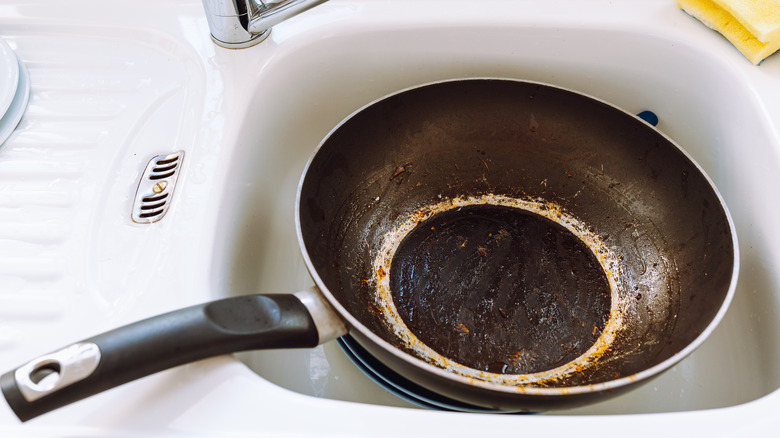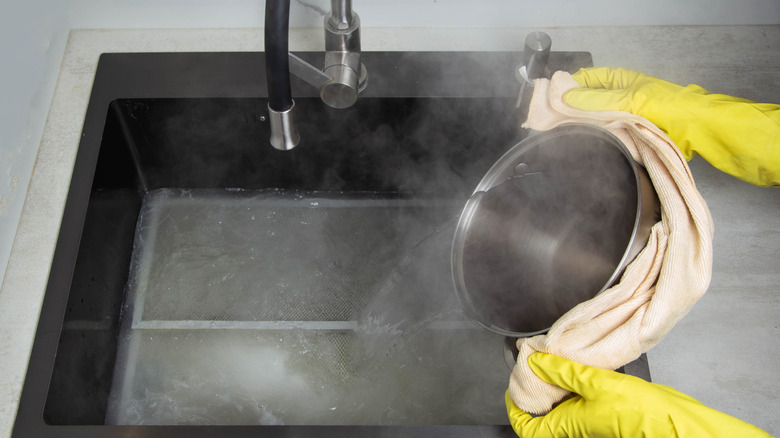This Common Grease Removal Method Will Still Ruin Your Sink Drain (And Cost You Money)
Pouring leftover grease down the drain can be tempting, but it's one of the biggest mistakes everyone makes when doing the dishes. It's quick and easy, and anything that cuts down on the time it takes to do the dishes can seem like a good call. Many people think they can avoid any blockages by following up with hot water, but unfortunately, that's not the case: you might even end up spending more money to fix the problem in the end.
When it comes to greasy cooking products like butter, vegetable oil, sauces, or even salad dressings, out of sight won't equal out of mind forever. These greases are likely in liquid form after you finish cooking, making it easy to pour them down the drain, but they will re-solidify as they cool. As more grease accumulates, it lodges in the pipes and prevents water from draining properly. This grease blob also traps food particles, making the blockage even bigger. For those on municipal water, this can pose a danger not only to your home's plumbing but also to the entire water system, as the grease can combine into large "fatbergs" that cause sewage backups and have to be manually removed by workers. For those with septic systems, grease doesn't easily break down and can lead to costly repairs.
Hot water isn't the solution, despite how often it's recommended. It simply moves the fat further down into your pipes, where the blockage is harder to reach and more expensive to fix. Adding dish soap to the equation doesn't help much, because dish soap isn't strong enough to dissolve that much grease.
How to clean grease from a drain without hot water
What if you've already poured grease down your drain and want to remove it? First, try using a less toxic alternative to drain cleaner with enzymes designed to break up grease. It may take multiple applications to fully clear a blockage. For a quicker, yet harsher approach, a caustic drain cleaner such as Drano is the way to go. It contains ingredients like lye or caustic potash, which quickly get rid of stubborn grease and organic matter but can be hazardous. However, don't rely on using a caustic cleaner frequently; they can be corrosive to pipes, which is risky in older houses. Drain cleaners also kill the organisms that break down waste in septic systems, whereas enzymatic drain cleaners do the opposite and are beneficial to the system. If neither of these products do the trick to clear a blockage, call a plumber for assistance.
In the future, never pour grease down the drain, with or without hot water. Instead, wait for it to solidify, then scrape it into a separate container or trash bin. Rather than using hot water to rinse the pot or pan afterward, use a paper towel to wipe any grease residue away. Then wash with cold water — that way, if there is a bit of grease left over, it will solidify rather than flow down into your pipes. As an extra precaution, you can also add baking soda and vinegar to the drain after you're done doing the dishes to clear out any grease that managed to get through.

